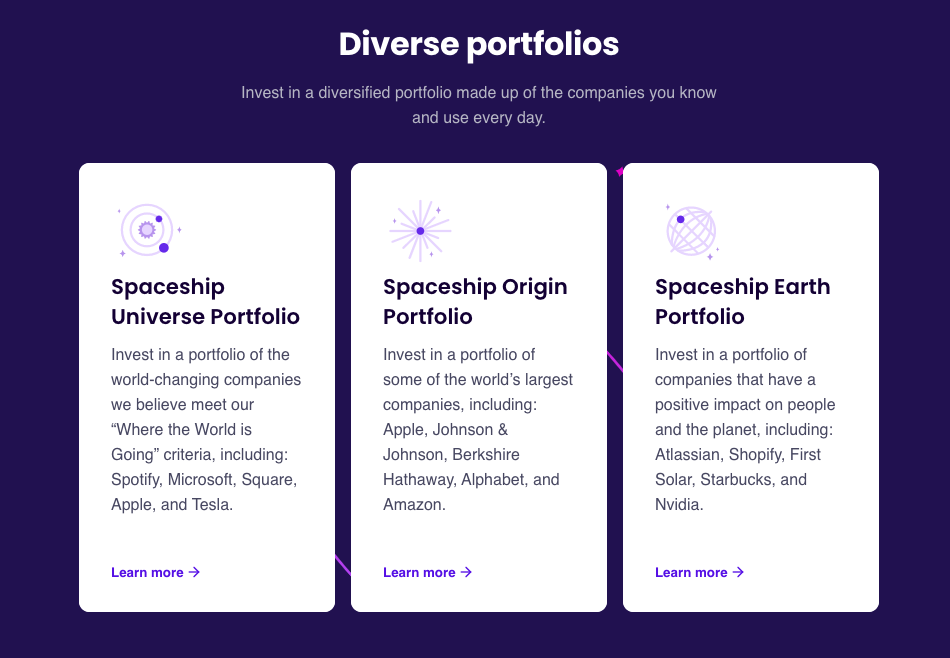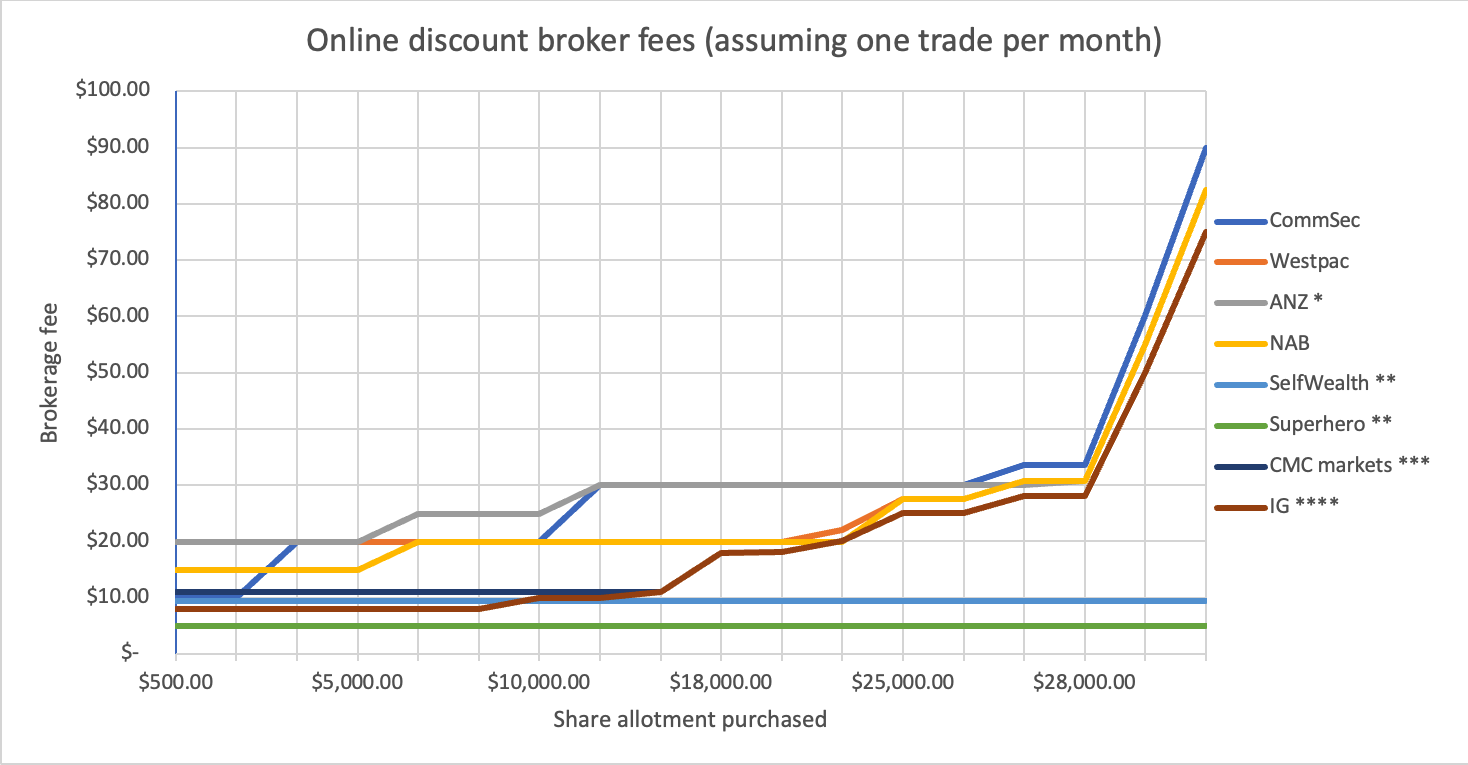Back to Basics: Choosing the right broker for you
Education, education, education. You asked for it and we listened. In our annual reader survey, it was one of the most requested topics for the Livewire team to cover. And we're here to deliver.
This article is the first instalment of Back to Basics. An education series focused on making markets more understandable, and you a better investor.
While it's clear the Livewire readership is broad and deep in experience and expertise, this series aims to leverage the wealth of expert contributors on Livewire to refresh our advanced readers and introduce our newer members to the key information you need to know about markets and investing.
To do this, I have identified five areas of interest that will help you on your journey:
- Choosing the right broker for you
- Equities - what you REALLY need to know
- How to construct a tailored portfolio
- Managing your investments over time
- Does the macro environment matter?
TODAY'S TOPIC: STARTING AT THE BEGINNING - BROKERS
What is a broker?
A broker is an organisation that helps individuals and entities access the sharemarket. Each category of broker has multiple options, each with its own offerings (and fees and pricing) to entice you to buy shares with them.
Let's take a look at the three key categories below.
Micro-investing platforms. These are easy to use, low-cost platforms that let users invest with small amounts of capital without needing upkeep. Some examples are: Raiz, Spaceship, and CommSec Pocket
Discount online brokers are the platforms most investors are familiar with. They are for self-directed investors looking to make their own decisions. Some examples are: CommSec, CMC Markets, and Superhero
Finally, Full-service brokers, who provide advice on buying and selling shares, investment recommendations and research. Typically they also offer advice on other investments and tailored investment planning. Brokerage fees are generally higher for advisory broking services. They include firms like Bell Potter, Shaw and Partners and Morgan Stanley.
Let's see which of these platforms is right for you.
Micro-investing platforms (or "What to do if I can't be bothered to build my own portfolio)
First, it is helpful to ask yourself whether you really want to build your own portfolio. If you frequent Livewire, you likely do, but the question deserves discussion.
At a recent birthday, a friend's partner and I were chatting about our work, and upon learning that I write for Livewire he proceeded to tell me:
"See, I know I SHOULD be investing my spare money, but it all seems quite difficult, and I don't know if I care enough to learn."
Heartbreaking to a "stock-frother" like me. But I know better than thinking I can turn every one to the dark side. Instead, I proceeded to tell him about the wonders of micro-investment platforms.
Micro-investing platforms are platforms that allow you to put up small amounts of capital and invest in a variety of pre-set investment themes.
Like your ordinary Super account, investors are provided with a small number of investment options that follow a variety of themes. In the example below, Spaceship's offerings are split into three options: Investors can allocate funds to these options at the click of a button and in no time put their money to work.

An example of the pre-mixed portfolios offered by micro-investment platform Spaceship (Source: Spaceship)
These platforms require little to no minimum investments, no need to keep up on which stocks are hot and a better return than that cash moving backward in your savings.
Of course, micro-investment platforms are not a substitution for a bank account - your potential returns are compensation for the risk you take. However, to the person who wants to invest, knows that there are better options than letting their money sit in a bank account but doesn't have the time or interest to dive deeply into markets, micro-investment platforms may be for you.
The key players in Australia are:
- Raiz
- Spaceship, and
- CommSec Pocket
If the above sounds appealing to you, look further into micro-investing platforms like these.
Discount online brokers (or "Going it alone")
Discount online brokers are for those interested in researching and creating their own portfolio. If you frequent Livewire, this is probably your playground. As a result, this normally is accompanied by higher brokerage fees, larger minimum investments and no hand-holding in comparison to micro-investing platforms. These are the most common kind of platforms for self-directed investors and the way to access markets to build your own portfolio.
#1 How much of a 'discount' are we talking about here?
The fee structures on offer can be very confusing and require an in-depth analysis of their product disclosure statement.
Below I have provided a representation of the major discount online broker fees for ASX investing, not including optional subscription fees and discount offers for certain trade thresholds.

* With ANZ, by default, there is a $19.95 account fee per quarter unless, your portfolio is worth $10,000 on the proceeding calendar month, or you make at least one trade in the preceding six months. You can elect to downgrade your account to avoid this fee.
** Superhero and SelfWealth offer subscriptions services to access more information and advanced market order techniques.
*** CMC Markets offer discount options for portfolios that make 11 - 30 trades in a month and a further discount for more than 30 trades.
**** IG offers a discount to accounts that make more than 3 trades a month.
The number of asterisks above needed to fully represent the fee landscape of online brokers makes the point clear. There is a lot to it. The two largest considerations here are how often you will be trading and how large your share purchases will be.
If you plan to be frequently trading in and out of positions the fee structure of your broker will have a larger impact on returns than an investor who makes few to no trades per month.
If you plan on purchasing large share allotments a flat fee broker might be more enticing to you. After allotments worth $28,000 we see brokerage fees enter the stratosphere, but whether you will buying positions that large any time soon is another question. (I sure know I'm not.)
#2 Do you own your shares?
The other large consideration with discount brokers is who will ultimately own the shares. Shares in Australia are either CHESS sponsored or held by a custodian.
Stockspot founder Chris Brycki breaks it down in this ABC interview.
Investing directly means these shares are CHESS sponsored, you are the legal owner of the shares.
Using a custodian means that your shares are held by a third party. The custodian is the legal owner of the shares and you are the 'beneficial owner'. If the custodian collapses, getting your money back is not easy.
#3 So who lets me own my shares?
If you want to invest outside of Australia there isn't much choice. Even Australia's largest broker Commbank's CommSec uses third party ownership for international shares.
Otherwise, all other ASX-brokers offer CHESS sponsored shares bar Superhero. (If their low flat fees caught your eye, you will want to know about their ownership approach. If so, chuck on your mental jogging shoes for this one. If not, feel free to move to the next section)
Superhero uses a pooled investment approach conducting all trades through a single account at the ASX.
A regular broker conducts each order and change ownership for an individual separately. For this process, the broker incurs a fee with every change, which is then passed on to the purchaser.
Superhero pools these charges together on one account, meaning it can record these movements in bulk. This saves on brokerage fees but puts your legal title over these shares in question
The AFR's Tom Richardson identifies that the risk of Superhero's model is that "investors do not have legal title to the shares, only beneficial title under the agreement with the broker."
Legal title is important as, in the event of a bankruptcy, or for losses incurred as a result of an unauthorised corporate action for example these investors are not afforded protection under the ASX administered National Guarantee Fund (NGF). As Brycki puts it:
"You are not only wearing the risk of the stock market but also of your broker".
#4 Is the risk worth worrying about?
Well, it all depends on what is important to you and what type of investor you are (an answer that you will probably hear a lot throughout this series).
If you are more akin to a trader, planning to quickly move in and out of positions, you may be willing to forego full legal protection over your holdings in exchange for the lowest fees available.
If you plan to hold your investments for a longer period of time, legal title will likely be more important to you.
What is most important is that you are informed on this issue. Looking at the above graph of fee structures, it seems like a no brainer to use Superhero's ultra low fees. This should serve to remind you of the importance of due diligence throughout your investing career.
Full-service broking (or "How to invest like the professionals")
The ASX investing guide defines full-service brokers as those which:
Offer advice on buying and selling securities, make recommendations, provide research and compile tailored investment plans.
They typically charge a higher brokerage fee as a result of the advice and other services offered. Accredited advisers are also available for options, warrants and futures.
These firms are like the inverse of micro-investing platforms. For higher fees and much higher minimum investments, full-service brokers work with their clients to manage their wealth and help them invest or do so on their behalf.
These are professional and licensed individuals, specialised in working with their clients to meet their financial objectives.
A large number of full-service firms are also Livewire contributors, reading their insights may help determine if their products are right for you. Some of them are:
- Bell Potter
- Morgans
- Evans and Partners
- Shaw and Partners
- Credit Suisse
- Morgan Stanley
- JP Morgan
This list from the ASX provides more brokers and a helpful comparison tool.
If you are a high net-worth individual looking for a service that helps you make informed investment decisions, a full-service broker might be for you
Summing it up
There are many brokers to chose from all catering to what kind of investor you are. On offer are micro-investing platforms, discount online brokers and full-service offerings.
Choosing a broker is ultimately the first step to investing and with so many options available, it is easy to become frozen in inaction. I hope you can use this article to understand some of the important considerations necessary when choosing the right broker for you.
Next time, I will be speaking to some experts on the fun stuff and what will ultimately make up most of your portfolio. Equities - what you actually need to know.
What other topics would you like to see?
More education content was heavily requested in our annual reader survey so I hope this series can help us all become better investors. What topics of education would you like me to cover? Let me know in the comments below.
Not already a Livewire member? Sign up today to get free access to investment ideas and strategies from Australia’s leading investors.
3 topics

